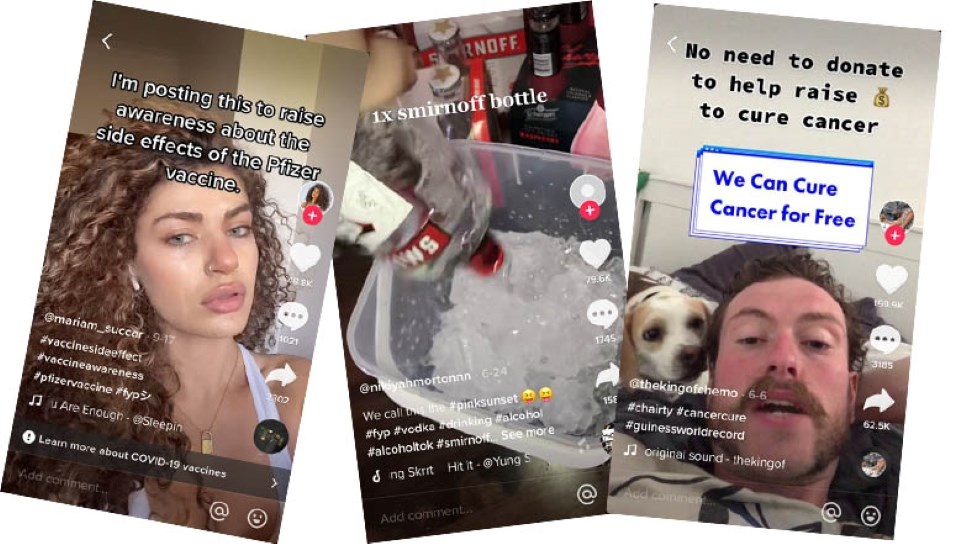UBC researchers are raising concerns and want research into the intersection of social influencers, public health and the short video empire that is TikTok.
With over a billion users, TikTok has become a common source of entertainment and information, but is poorly understood when compared to other social media platforms, says the trio from UBC.
Dr. Skye Babrbic, research associate Marco Zenone and postdoctoral fellow Nikki Ow want researchers around the world to work together and plan how research of the fast-growing short video platform is affecting public health, especially as 80 per cent of the users are under 30.
Zenone notes the platform has issues with everything from alcohol to cancer.
"For example, a recent study found that 98 of the top 100 TikTok videos with the hashtag #alcohol portrayed alcohol in a positive way," he says in a press release. "That’s concerning to us as public health researchers."
While searching for vaccines or COVID-19 will turn up evidence-based informative videos, the same can't be said about other health issues with misinformation or videos pushing "unproven medical interventions."
"TikTok can be used for good but it can also be used for nefarious purposes," he says. "A bad actor who doesn’t have the best intentions can easily reach many people."
It's understood that there has been a variety of behaviour on other, older social media platforms.
"In the past, health-harming industries have used influencers—defined as influential persons online—to promote harmful products. The vaping company JUUL employed Instagram influencers and affiliate marketers to promote their products that now constitute a public health crisis," the trio state in their letter to researchers.
TikTok may have the same issues.
"The quality of the information offered, qualifications of the persons offering advice or their conflicts of interest, are largely unknown. A recent study on diabetes information on TikTok found that while good actors, such as qualified organisations, gave evidence-based information, those made by for-profit groups had poor quality," the trio state.
Different problems plague the platform's videos addressing mental health.
"Several TikTok trends depict creators sharing personal, sometimes traumatic, stories such as surviving sexual assault, suicide or an abusive experience such as domestic violence," they write." Sharing the stories, while courageous, may reach persons unprepared to view the content."
Those videos could negatively trigger people who have recently gone through similar experiences or be seen by youth or children unprepared for the subject matter.
And while hate speech is banned, there are still questions about how well that is moderated. They site a report that showed how people could end up watching transphobic content.
That means it's unknown what sort of information is filtering through.
"People may be using TikTok to learn about specific mental health conditions, but we don’t know if they’re getting accurate information or advice," says Zenone. "Content creators providing that information could have conflicts of interest: Are they selling a product? Do they have proper credentials?"
That's why it needs to be better understood.
"Given TikTok’s influence on discourse about important public health topics, I think it’s paramount that we understand what’s happening on the platform, how people are using it and how we can improve experiences from a safety perspective," says Barbic. "Especially for young people."
"It’s very rare that you see something so widely used that has so little research about it."
They've published a proposed research agenda to the world, looking for researchers around the world to join in research independent from TikTok.
"Given the rapid growth of TikTok—research is needed urgently," the trio state in their agenda. "Particular demographics, such as young people, use TikTok at higher rates and need focused research attention to understand their app engagement and perceptions."



